THE COLLECTIVE
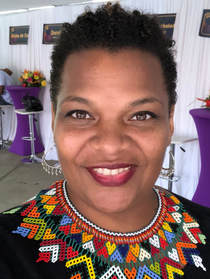
Zakiya Carr Johnson is a subject matter expert on social inclusion and global diversity with extensive experience in international development and non-governmental and government relations. She has over 20 years of experience shaping policy to include gender equity and racial equality considerations in the Americas. Prior to launching ODARA Solutions, LLC and the Black Women Disrupt Initiative, she served as Senior Advisor and Director of the Race, Ethnicity and Social Inclusion Unit at the U.S. Department of State and co-chair for the White House Inter-Agency Committee on Gender- Based Violence Monitoring and Evaluation during the Obama Administration. She was Senior Technical Advisor for the Social Inclusion Trust Fund at the Inter-American Development Bank and Representative for Ecuador and Venezuela at the Inter-American Foundation. She has worked extensively with non governmental organizations social justice organizations throughout the Americas and she spent three years as Youth and International Affairs Advisor at Geledés Instituto da Mulher Negra in São Paulo, Brazil. Zakiya holds a B.A. in Communications and Spanish at Howard University, studied International Relations at Syracuse University and History at the University of São Paulo.
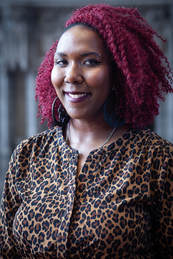
Jenn M. Jackson is a doctoral candidate in the Department of Political Science at the University of Chicago where she has also received a graduate certificate in Gender and Sexuality Studies. Her research focuses on Black Politics with an emphasis on group threat, gender and sexuality, public opinion, political psychology, and behavior. She is also a writer at Teen Vogue and BITCH Magazine.

Erica Lorraine Williams is Associate Professor and Department Chair of the Sociology and Anthropology department at Spelman College in Atlanta, Georgia. She has a Ph.D. and M.A. in Cultural Anthropology from Stanford University, and a B.A. in Anthropology and Africana Studies from New York University. She is the author of Sex Tourism in Bahia: Ambiguous Entanglements (2013), which won the National Women’s Studies Association/University of Illinois Press First Book Prize in 2011. She is also a co-editor of The Second Generation of African American Pioneers in Anthropology, along with Ira Harrison and Deborah Johnson-Simon(University of Illinois Press, 2018). She is Contributing Editor to the Handbook of Latin American Studies (Sociology: Brazil section), and has published in Feminist Studies, Gender, Place, and Culture: A Journal of Feminist Geography,the Macmillan Interdisciplinary Handbook on Gender: Love, Transatlantic Feminisms: Women and Gender Studies in Africa and the Diaspora (2015), Policing Pleasure: Global Reflections on Sex Work and Public Policy(2011); and Taking Risks: Feminist Stories of Social Justice Research in the Americas(2014). She is currently working on a project on Afro-Brazilian feminist activism in Bahia, Brazil.

Ashanté Reese is an Assistant Professor of Anthropology at Spelman College. She earned a PhD in Anthropology from American University with specialties in race, gender, and social justice. Dr. Reese’s interest in the intersections of race and space manifests itself in Black folks’ production or navigation of space with regard to food access. As a researcher committed to interdisciplinary scholarship, Dr. Reese’s contributions can be found in journals spanning anthropology, sociology, and geography, and in other venues such as Gravy Magazine and Sapiens Magazine. Her book, Black Food Geographies: Race, Self-Reliance, and Food Access in Washington, DC – published by UNC Press, lauds and investigates the limits of Black residents’ use of self-reliance in response to a depletion of local food options.
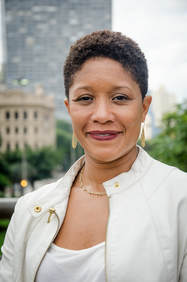
Christen A. Smith is the founder of Cite Black Women, a Black feminist anthropologist, social justice advocate, Associate Professor of Anthropology and African and African Diaspora Studies at The University of Texas at Austin. Her work focuses on the gendered dimensions of anti-Black state violence and resistance in the Americas, examining the immediate and long-term impact of police violence on Black communities, particularly Black families and Black women. Her work on gender and state violence looks at the lingering, deadly impact of state terror on Black women, which she theorizes as sequelae. She has written extensively on this lingering deadly impact and her research has been featured on Democracy Now!, PBS Newshour and The Feminist Wire among others. She is the author of Afro-Paradise: Blackness, Violence and Performance in Brazil (University of Illinois Press, 2016).

Daina Ramey Berry is the Oliver H. Radkey Regents Professor of History and Associate Dean of Graduate Studies at the University of Texas at Austin. She completed her BA, MA and PhD at UCLA. Dr. She is the award-winning author and editor of five books and several scholarly articles. Her book, The Price for their Pound of Flesh: The Value of the Enslaved, from Womb to the Grave, in the Building of a Nation (Beacon, 2017) has been awarded three book awards including the 2018 Hamilton Book Prize from the University Coop for the best book among UT Austin faculty; the 2018 Best Book from the Society for the History of the Early American Republic (SHEAR); and the Phyllis Wheatley Award from the Sons and Daughters of the US Middle Passage.
Dr. Berry has appeared on several syndicated radio and television shows and in 2016, she served at a historical consultant and technical advisor for the remake of ROOTS (HISTORY/ A+E).
Professor Berry is currently finishing a co-authored book, A Black Women's History of the United States (Beacon Press, 2020), creating a resource on slavery for K-12 educators, and working with EnLight Productions on a digital media platform called Making History Hers.
Dr. Berry has appeared on several syndicated radio and television shows and in 2016, she served at a historical consultant and technical advisor for the remake of ROOTS (HISTORY/ A+E).
Professor Berry is currently finishing a co-authored book, A Black Women's History of the United States (Beacon Press, 2020), creating a resource on slavery for K-12 educators, and working with EnLight Productions on a digital media platform called Making History Hers.
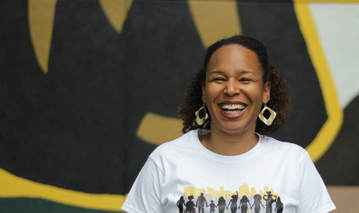
Bianca C. Williams is an Associate Professor of Anthropology at The Graduate Center, CUNY. She earned her B.A. and Ph.D. in Cultural Anthropology, and a Graduate Certificate in African & African American Studies, from Duke University. Williams is a past recipient of the American Anthropological Association & Oxford University Press Award for Excellence in Undergraduate Teaching of Anthropology. Her research interests include Black women & happiness; race, gender, and emotional labor in higher education; feminist pedagogies; and Black feminist leadership studies. In her book, The Pursuit of Happiness: Black Women, Diasporic Dreams, and the Politics of Emotional Transnationalism (Duke U Press, 2018), Williams examines how African American women use international travel and the Internet as tools for pursuing happiness and leisure; creating diasporic relationships; and critiquing American racism and sexism. Williams argues that pursuing happiness is a political project for Black women. Additionally, she has written about “radical honesty” as pedagogy in the volume, Race, Equity, and the Learning Environment (edited by Tuitt, Haynes, and Stewart 2016), and published on #BlackLivesMatter, anthropological writing, and tourism in the journals Soulsand Cultural Anthropology, and on the blogs Savage Minds and Anthropoliteia. The investigative thread that binds Williams’ research, teaching, and organizing is the question “How do Black women develop strategies for enduring and resisting the effects of racism and sexism, while attempting to maintain emotional wellness?” She is currently working on two projects: (1) an examination of plantation politics and campus rebellions in the academy with Frank Tuitt and Dian Squire; and (2) an analysis of Black women’s organizing and emotional wellness practices in the Movement for Black Lives.

Yasmiyn Irizarry is Assistant Professor of African and African Diaspora Studies and Faculty Research Associate in the Population Research Center at The University of Texas at Austin. Dr. Irizarry is a quantitative sociologist by training with expertise in race and racism, intersectionality, and critical quantitative methods. Her research focuses on (1) inequality in K-16 schooling contexts, with particular emphasis on STEM experiences, (2) racial identity, ascription, and measurement, and (3) social attitudes, prejudice, and discrimination. Dr. Irizarry current work examines the linkages between community, district, and school-level factors and the prevalence of racialized tracking in mathematics in U.S. public high schools, and the effects of racially tracked environments on STEM learning and persistence at the intersections of race and gender. Dr. Irizarry earned her B.A. in Sociology from The Ohio State University and her M.A and Ph.D. in Sociology from Indiana University Bloomington. Her work has been published in leading academic journals such as Social Science Research, Sociology of Race and Ethnicity, Race and Social Problems, and the Journal of Homosexuality, and been featured in media outlets including Education Weekand Scientific American. her research has been funded by the Ford Foundation and the American Educational Research Association.

Whitney N. Laster Pirtle is an Assistant Professor of Sociology and affiliated faculty with Critical Race and Ethnic Studies at the University of California, Merced. She received her B.A. from Grand Valley State University in MI, and earned her Ph.D. from Vanderbilt University in Nashville, TN. Her areas of expertise include race and racism, identity, inequality, and mental health. Her work has been published in academic journals such as Sociological Perspectives, Social Currents, and Social Science and Medicine, as well as media websites such asHuffington Post and The Conversation. Dr. Pirtle was awarded a prestigious Ford Postdoctoral award for this academic year and will use the time to finish her book, tentatively titled Positioning ‘Colour’: Racial Limbo in the Rainbow Nation, which explores the formation and transformation of the “coloured” racial group in post-apartheid South Africa.
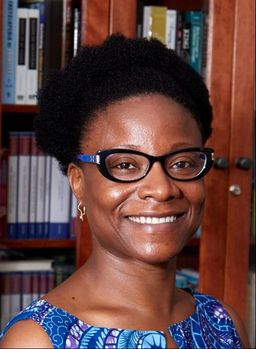
Keisha-Khan Y. Perry received her B.S. in Spanish and Women’s Studies from Georgetown University and her M.A. and Ph.D. in Social Anthropology from the University of Texas at Austin. She is currently an Associate Professor of Africana Studies at Brown University where she specializes in race, gender and politics in the Americas, urban geography and questions of citizenship, intellectual history and disciplinary formation, and the interrelationship between scholarship, pedagogy and political engagement. She has conducted extensive research in Argentina, Belize, Brazil, Ecuador, Mexico, and the United States. Her first book, Black Women against the Land Grab: The Fight for Racial Justice in Brazil (fall 2013, Minnesota Press), is an ethnographic study of black women’s activism in Brazilian cities, specifically an examination of black women’s participation and leadership in neighborhood associations, and the re-interpretations of racial and gender identities in urban spaces. Winner of the National Women's Studies Association 2014 Gloria E. Anzaldúa Book Award, this book includes an analysis of the relationship between environmental justice movements and land and housing rights struggles in Brazil. She is currently writing the book,Anthropology for Liberation, that draws heavily from her ethnographic research experience in Brazil with an emphasis on the complexity of doing activist research amidst racial and gender violence. She is also working on two other book projects: The Historical Paradox of Citizenship: Black Land Ownership and Loss in the Americas and Evictions and Convictions which represent a continuation of her ongoing research on black land loss and ownership in relationship to the material articulation of citizenship in Brazil, Jamaica, and the United States. She has won numerous awards over the years to support her research such as the National Science Foundation and Fulbright fellowships.

Alysia Mann Carey is a co-producer of the Cite Black Women Collective and a PhD Candidate in Political Science at the University of Chicago. Her research examines how state and interpersonal forms of violence intersect in Black women's lives in Brazil and Colombia, and how women in Black communities are leading movements against anti-black violence. Her fields of interest include Black Politics from a comparative perspective, Black Feminism, and political violence.

Michaela Machicote is a co-producer of the Cite Black Women Collective and received her PhD in African and African Diaspora Studies from the University of Texas at Austin. Her research examines how state laws and policies enact various forms of violence against Black (queer) women in Chicago and how these same women employ a Black feminist praxis to combat state and urban violence. She received her MA from the University of Texas at Austin where she focused on the ways in which Puerto Rican sociopolitical ideologies perpetuated antiblackness even as Puerto Ricans celebrate Blackness as a spatially and temporally confined, cultural aspect of Puerto Rican heritage. Michaela's fields of interest include Black Feminism, antiblack state violence, sex work studies, Latino Studies and Latinidad, and Afro-Latin American identity. She is also a visual artist and poet, featuring her art on this website.
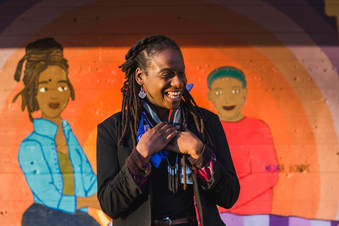
Imani A. Wadud is a PhD candidate in the Department of American Studies at the University of Kansas. With the support of a Chancellor Doctoral Fellowship, Wadud focuses primarily on the 20th century into our contemporary moment, working at the intersection of visual culture, performance studies, critical ethnic studies, and Blackness. Her research incorporates visual culture theory and scholar-practitioner research that centers transnational, Black diasporic modes of artistic expression. With a background in social activism and performance-based social practices, Wadud works at the Spencer Museum of Art as the Andrew W. Mellon, Integrated Arts Research Initiative Graduate Fellow. Currently, Imani investigates how decentralizing status quo modes of academic (museum) engagement with marginalized cultural expressions ought to promote decolonial modes of thinking, doing, and being. Wadud is excited to spend a year of research working with colleagues at the SMA to bridge theory and praxis around the inner workings of academic programming and, in turn, produce more politically responsible and inclusive encounters with Black womxn as well as other marginalized knowledges in academic, community, and museum spaces.
Proudly powered by Weebly